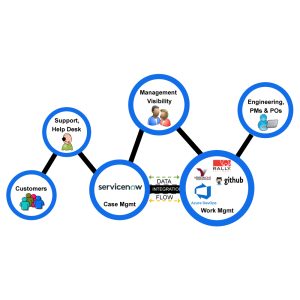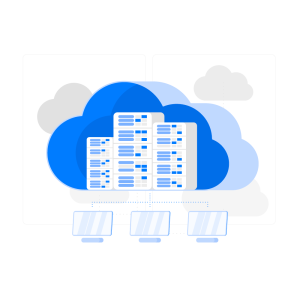The pace of business has accelerated to a point where traditional decision-making models no longer suffice. Companies that once had the luxury of days to analyze reports must now make real-time decisions powered by accurate, contextual insights. Whether it’s approving a financial loan, identifying a fraudulent transaction, or optimizing inventory levels, the stakes are higher, and the margin for error is slim.
This is where automated decision making emerges as a strategic enabler. By embedding AI and analytics into workflows, organizations can standardize, accelerate, and optimize decisions while reducing human error. IBM leads this transformation with Watson Studio and IBM Cloud Pak, integrated platforms that enable enterprises to build, train, deploy, and govern AI-driven decision systems. Combined with IBM business analytics, these tools make decisions not only faster but also explainable and compliant critical in regulated industries like banking, insurance, and healthcare.
In this blog, we’ll explore how IBM Watson Studio and Cloud Pak enable automated decision making, the key benefits for enterprises, real-world use cases, and why automation has become a business imperative for 2025 and beyond.
What is Automated Decision Making?
At its core, automated decision making is the process of using data, AI, and analytics to make decisions with minimal or no human intervention. Unlike static rule-based systems of the past, modern automated decision-making engines leverage machine learning, predictive models, and real-time data pipelines to adapt continuously.
Key elements of automated decision making include:
- Data Integration: Collecting structured and unstructured data across systems and making it usable.
- AI Models: Using machine learning algorithms trained on historical and real-time data to predict outcomes.
- Business Rules: Embedding policies, regulations, and enterprise logic into the decision pipeline.
- Automation Workflows: Executing actions such as approvals, alerts, or next-best recommendations.
When implemented with platforms like IBM Watson Studio and IBM Cloud Pak, automated decision making goes beyond operational efficiency. It becomes a source of innovation, enabling businesses to scale decisions across geographies, functions, and industries.
IBM Watson Studio: AI for Smarter Decision Making
IBM Watson Studio is IBM’s flagship AI and data science platform that allows enterprises to build, train, and manage machine learning models. It empowers data scientists, developers, and analysts with tools for AI automation at scale.
Key features of Watson Studio include:
- AutoAI: Automates model development, hyperparameter tuning, and deployment.
- Collaborative Tools: Supports both no-code (visual modeling) and code-first workflows (Python, R, and Jupyter Notebooks).
- Integrated Governance: Tracks data lineage, ensures explainability, and monitors model drift.
- Hybrid Cloud Flexibility: Built on IBM Cloud Pak for Data, Watson Studio supports deployments across public, private, and hybrid clouds.
For decision-making, Watson Studio helps businesses train predictive models that assess risk, detect anomalies, or recommend actions in real time. For example, in finance, Watson Studio can model customer creditworthiness; in healthcare, it can predict treatment outcomes; and in retail, it can forecast demand with precision.
By integrating AI models directly into workflows, enterprises accelerate time-to-decision while ensuring accuracy, compliance, and transparency.
IBM Cloud Pak: The Backbone of Decision Automation
While IBM Watson Studio enables organizations to build and train powerful AI models, it is IBM Cloud Pak that provides the enterprise-ready infrastructure to deploy those models at scale. Cloud Pak is a suite of containerized, cloud-native solutions built on Red Hat OpenShift, designed to help enterprises unify data, applications, and automation workflows across hybrid and multi-cloud environments.
How IBM Cloud Pak strengthens automated decision making:
- Hybrid Cloud Flexibility: Businesses can run decision-making workloads across public, private, or on-premise environments, giving them the agility to meet data residency, compliance, and cost optimization requirements. This is particularly critical for industries such as finance and healthcare, where regulations demand strict control.
- Containerization and Scalability: With Kubernetes and OpenShift, Cloud Pak ensures AI models can scale horizontally as demand grows. This eliminates bottlenecks, enabling enterprises to process thousands of automated decisions in real time without compromising performance.
- End-to-End Integration: Cloud Pak seamlessly connects Watson Studio with IBM’s broader ecosystem and third-party applications. This integration ensures that data ingestion, model training, deployment, and execution flow smoothly within a unified decision pipeline.
- Security and Governance: Built-in features support encryption, access control, and compliance with frameworks like GDPR, HIPAA, and Basel III. This ensures every AI-powered decision is transparent, secure, and auditable.
By combining Watson Studio with Cloud Pak, organizations create a resilient, AI-powered decision automation framework that is both scalable and compliant enabling faster ROI and long-term digital resilience.
Role of IBM Business Analytics in Automated Decision Making
Automation delivers speed, but without analytics it risks being blind. This is where IBM business analytics tools add significant value, ensuring that decisions made by AI are transparent, measurable, and directly tied to business outcomes. By integrating seamlessly with IBM Watson Studio and IBM Cloud Pak, analytics tools like Cognos Analytics and Planning Analytics with Watson transform raw AI outputs into actionable intelligence for business leaders.
- Cognos Analytics empowers executives with AI-driven dashboards that visualize performance metrics in real time. Instead of waiting for static reports, leaders can detect anomalies, monitor KPIs such as sales performance or operational risk, and respond instantly.
- Planning Analytics goes a step further by embedding predictive models built in Watson Studio into financial planning and forecasting. This ensures that budgeting is no longer backward-looking but continuously updated with live, data-driven insights.
- Narrative AI simplifies complex data by converting it into plain-language summaries, allowing non-technical users to understand and act on key trends.
Together, these tools ensure that automated decision making remains not only fast but also explainable, auditable, and aligned with business strategy an essential capability for regulated industries like finance and healthcare.
Benefits of Automated Decision Making with IBM Watson Studio & Cloud Pak
Automated decision making, when powered by IBM Watson Studio and IBM Cloud Pak, delivers a wide range of business benefits that go far beyond cost savings. These platforms provide the foundation for enterprises to act faster, smarter, and with greater confidence.
- Speed and Efficiency: Complex decisions that previously required hours of manual review can now be executed in seconds. This speed improves responsiveness in critical areas such as fraud detection, loan approvals, and supply chain adjustments.
- Accuracy and Consistency: By leveraging trained AI models, organizations minimize human error and bias. Every decision follows the same data-driven rules, ensuring fairness and reliability across the enterprise.
- Scalability Across Use Cases: With IBM Cloud Pak’s hybrid cloud architecture, businesses can extend decision-making frameworks across multiple regions, departments, and industry scenarios without losing oversight.
- Compliance and Governance: Both Watson Studio and Cloud Pak include governance tools that provide audit trails, explainability, and adherence to frameworks like GDPR, HIPAA, and Basel III.
- Operational Cost Savings: Automated workflows reduce manual workloads, cut back-office inefficiencies, and optimize resource utilization.
- Driving Innovation: By automating repetitive tasks, employees can shift focus to higher-value projects such as customer engagement, product innovation, and business expansion.
Together, these benefits highlight why Watson-powered automated decision making is central to enterprise digital transformation strategies.
Real-World Use Cases
Finance: Credit Scoring & Fraud Detection
Banks use Watson Studio to train models on transaction history, enabling automated credit scoring and fraud alerts. With Cloud Pak, these models scale securely across branches and geographies.
Healthcare: Treatment Recommendations
Hospitals use Watson AI to analyze patient data and suggest personalized treatment plans. Automated workflows reduce time to intervention and improve outcomes.
Retail: Demand Forecasting
Retailers deploy AI-driven forecasting models to optimize inventory levels. Automated decisions help avoid stockouts while reducing waste.
Manufacturing: Predictive Maintenance
Factories use Watson Studio to predict equipment failures and trigger automated maintenance requests. Cloud Pak ensures these models integrate seamlessly with IoT platforms.
Challenges and How IBM Solves Them
- Data Silos: Cloud Pak unifies structured and unstructured data sources.
- Explainability: Watson Studio provides explainable AI outputs to meet compliance needs.
- Scalability: Containerization ensures workloads scale dynamically.
- Security Risks: Built-in encryption and governance meet the strictest industry standards.
Future of Automated Decision Making with IBM
Looking ahead, automated decision making will evolve beyond efficiency to become a strategic differentiator. With advances in IBM Watson Studio, IBM Cloud Pak, and IBM business analytics, enterprises will gain access to:
- Real-time decision engines across global supply chains.
- AI-driven compliance monitoring that reduces regulatory risk.
- Explainable automation that builds customer and stakeholder trust.
The future is clear: businesses that invest in automated decision making today will be the leaders of tomorrow’s AI-first economy.
Why Watson-Powered Decision Automation is the Future
In today’s digital economy, automated decision making has shifted from being a competitive advantage to a business requirement. The sheer scale and speed at which organizations operate demand tools that can process massive data sets, predict outcomes, and deliver consistent results in real time. This is exactly what IBM Watson Studio and IBM Cloud Pak enable, especially when combined with the insights delivered by IBM business analytics. Together, they create a unified ecosystem that allows enterprises to move from reactive decision-making to proactive, intelligent automation.
The benefits are visible across industries. Financial institutions are using Watson AI to reduce fraud and automate credit scoring. Healthcare providers rely on it to personalize treatment plans and improve patient outcomes. Retailers deploy AI-driven forecasting to better manage inventory, while manufacturers integrate predictive maintenance to avoid costly downtime.
The return on investment (ROI) from these initiatives goes beyond cost reduction. Enterprises also gain improved compliance, greater agility, and the ability to scale globally without losing accuracy or trust. Looking ahead to 2025 and beyond, organizations that adopt Watson-powered decision automation will not just keep pace with disruption—they will shape the next wave of digital transformation.




